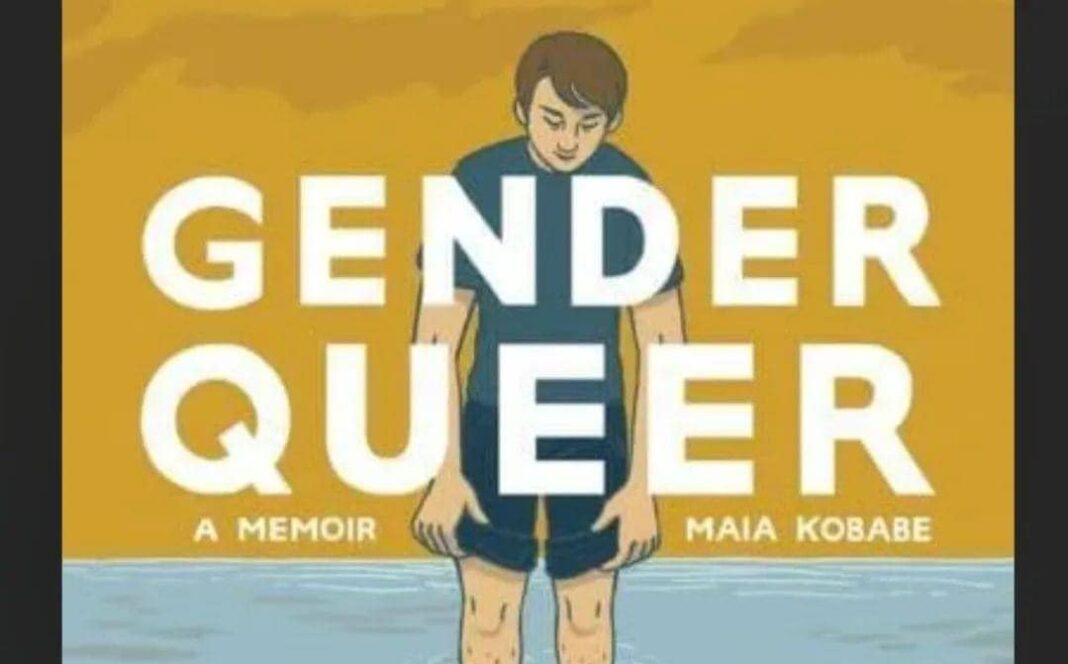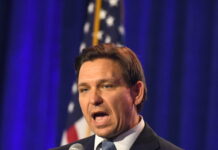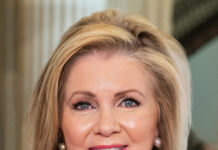By Peter Parisi
The Daily Signal
It’s quite surprising how much dishonesty and disinformation you can pack into a 27-minute “documentary” film. (Twenty-five minutes, if you don’t count the two minutes of credits at the end.)
But the dishonesty and disinformation in “The ABCs of Book Banning”—streaming now on Paramount+—is at least as much an act of omission as one of commission.
The MTV Documentary Films production opens with a scrolling introduction claiming that “[o]ver 2,000 books have been removed from school districts in the United States. These books have been labeled RESTRICTED, CHALLENGED, [or] BANNED and are generally not available to millions of students in up to 37 states.”
It then introduces us to Grace Linn, an angry centenarian who is shown scolding the Martin County, Florida, School Board about “book banning” on March 21. (Linn shouldn’t be confused with award-winning children’s book author-illustrator Grace Lin.)
You know you’ve lost the argument when you have to resort to likening the other side to Nazis. But that’s exactly what Linn does, explaining that her husband was killed in action in World War II fighting for freedom, the Constitution, and the First Amendment.
“One of the freedoms that the Nazis crushed was the freedom to read the books they banned,” she says, a quote that’s repeated near the end of the film—the second time over archival footage of World War II-era Nazi book-burning bonfires.
“Banned books and burning books are the same. Both are done for the same reason—fear of knowledge,” Linn adds, for demagogic effect.
What’s not clear from the film is how much knowledge Linn actually has about the explicit nature of the content of the most controversial of the books at the center of the ongoing national debate over what should and should not be on school library shelves and in classroom curriculums.
That’s just the first of many examples of how “ABCs” is guilty of bias by omission.
The narrator-free film proceeds to show a series of images of dozens of books that the documentary claims have been “challenged, restricted, or banned.” Short excerpts of text from each book scroll across the screen as the books are introduced, and that’s where the dishonesty really revs up.
Documentaries typically feature commentary from “talking heads” who presumably know what they’re talking about. “The ABCs of Book Banning,” however, takes its name from the fact that most of the talking heads here are precocious prepubescents, who clearly don’t.
“The voices of those who support book banning have been heard,” the film explains. “This film features the voices of those who have not been heard … the children.”
The filmmakers effectively exploit these kids—most of them 10 years old or younger—for sympathetic effect. They almost certainly were coached to say what producer-director Sheila Nevins, the former president of HBO Documentary Films, wanted them to say. That pretty much can be boiled down to something akin to “How could you do this to us?”
“They’ve pulled all the award-winning books,” laments Ruth Anne, 10, a fourth grader in Jacksonville, Florida. “Why take away all these excellent books? It’s like you’re trying to slow down children’s reading. Why do that?”
That brings us back to the short excerpts of text cited from each of the “challenged, restricted, or banned” books in question.
Viewers who are unfamiliar with the most-contested books cited would be forgiven for not understanding what the controversy is about, because the excerpts are almost all innocuous and definitely not the most salacious or pornographic sections. That is surely by design.
Although the documentary doesn’t try (because the title is a giveaway) to conceal the nature of, for example, “The Hips on the Drag Queen Goes Swish, Swish, Swish” by an author identified as Little Miss Hot Mess, viewers unfamiliar with “All Boys Aren’t Blue” by George Johnson and “Lawn Boy” by Jonathan Evison aren’t told that the contents include extremely graphic descriptions of homosexual sex acts.
Nor are viewers informed about the explicit nature of “Gender Queer” by Maia Kobabe, billed as the “most banned book in America,” although the title is certainly a red flag. (We won’t get into the specific content of these LGBTQ books here, but they easily may be found online if one is of a sufficiently prurient persuasion.)
LGBTQ novels aren’t the only books the film complains about being subject to reasonable restrictions on access by minors in schools, also without explaining what’s objectionable. One such tome is the anti-American “The 1619 Project” by black racist Nikole Hannah-Jones of The New York Times, which despite winning a Pulitzer Prize has been widely criticized by renowned historians and the National Association of Scholars as historical revisionism at its worst.
And yet, “the Times launched an extensive educational partnership with the Pulitzer Center as soon as the project was published, which has helped enshrine ‘1619’ falsehoods in countless K-12 schools,” wrote the association’s David Acevedo. That would suggest the book’s widespread availability despite any attempts to suppress it.
“ABCs” further seeks to lend objectionable books an undeserved halo effect by juxtaposing them with restrictions on classics such as “The Hobbit,” “The Kite Runner,” “Slaughterhouse-Five,” and “Anne Frank: The Diary of a Young Girl.” But as with all the other examples, it doesn’t cite any of the “who, what, when, where, or why” details of said restrictions.
Finally, to the extent that these books are—in Ruth Anne’s words—being “pulled” and “taken away” from classrooms and school libraries, it’s dishonest for this documentary (or Linn, or anyone else) to characterize such actions as a “ban.”
All of the books cited remain available for purchase at bookstores and online. Parents are free to buy them for their minor children—even if they’re not age-appropriate and even if many of us would regard that as child abuse.
















